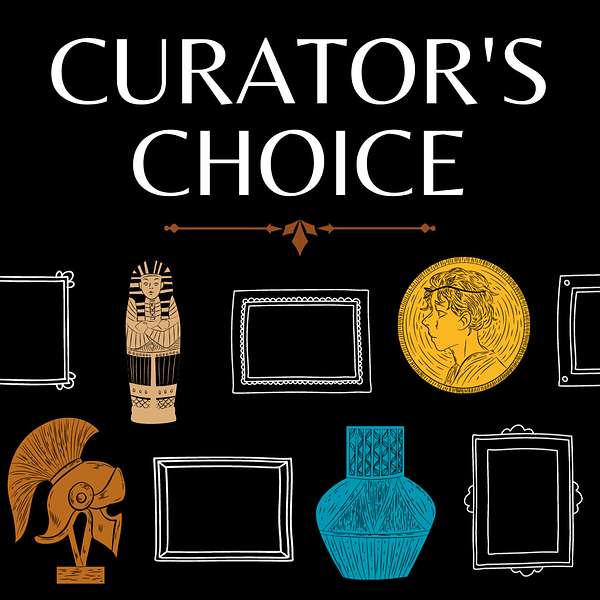
Curator's Choice
Like history? Love museums? From ancient relics to modern marvels, each episode of this show features a new museum and a sampling of some amazing artifacts housed there. What makes Curator's Choice truly special is our exclusive interviews with the unsung heroes of museums—the curators themselves. These guardians of history will share insights, anecdotes, and the often untold stories that breathe life into the artifacts they protect.
Through this podcast, our mission is to dispel the notion of museums as static, old, and dull spaces. Instead, we aim to reveal them as vibrant repositories brimming with mystery and wonder, one artifact at a time.
New episodes are released every two weeks, and you can tune in anywhere you get your podcasts!
Curator's Choice
Episode 39: Marietta House Museum
This week we meet with Julia Rose at the Marietta House Museum.
“Marietta House Museum houses the histories of multiple generations of families, free and enslaved, who lived and labored on the roughly 600 acres that made up Marietta Manor. The historic site holds the stories of how life was lived in agricultural Maryland from the Federal Era, Antebellum years, Civil War period, Jim Crow and Reconstruction through to the rise of the modern Civil Rights era in the early 20th century.”
The work done at the house primarily focuses on the slavery era and understanding the mechanics of that system, and the paradox of the legal language of Liberty. Silenced stories of enslaved individuals are shared, as well as the different avenues (legal and illegal at the time) that they used to pursue their freedom.
Gabriel Duval’s Law Office
Gabriel Duval was a very successful lawyer for enslaved people and their families who were filing petitions for freedom, freeing over 100 individuals throughout his career. He became a Supreme court associate justice during the time of President Madison, and his law office is found next to the Marietta House. It had contained a library of over 500 books and by examining the language of these texts, and comparing them to influential writings of the time, we can better understand the legal language and the definition of Liberty. However: “All men are created equal” did not apply to all men, and even Duval himself was dichotomous in this nature.
The Butler family, who Gabriel Duval enslaved in 1805, sued for their freedom in 1828. Though Duval was a lawyer for enslaved people who were filing petitions for freedom, he fought the Butler family in court for over three years. Though they were eventually successful, the legality of freedom was anything but simplistic.
We hold these truths to be self-evident, that all men are created equal, that they are endowed by their Creator with certain unalienable Rights, that among these are Life, Liberty and the Pursuit of Happiness.
— second paragraph of the United States Declaration of Independence
Episode Links:
- Marietta House Museum: https://www.pgparks.com/3072/Marietta-House-Museum
- Slavery Inventory Database: https://slaveryinventorydatabase.com/
- Duval Family Association: https://www.duvalfamilyassociation.org/
Curator's Choice - A podcast for history nerds and museum lovers